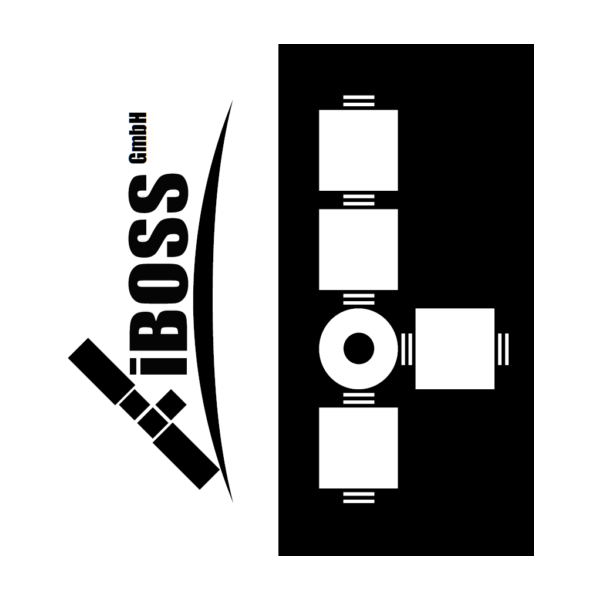Partners
Our collaborative project brings together six renowned partners from the space industry, aerospace and artificial intelligence research, working together to promote innovation in the field of orbital modular robotics and standardized space interconnections. Thales Alenia Space is the coordinator of the projet
ABOUT THALES ALENIA SPACE:
Drawing on over 40 years of experience and a unique combination of skills, expertise and cultures, Thales Alenia Space delivers cost effective solutions for telecommunications, navigation, Earth observation, environmental management, exploration, science and orbital infrastructures. Governments and private industry alike count on Thales Alenia Space to design satellite-based systems that provide anytime, anywhere connections and positioning, monitor our planet, enhance management of its resources and explore our Solar System and beyond. Thales Alenia Space sees space as a new horizon, helping build a better, more sustainable life on Earth. A joint venture between Thales (67%) and Leonardo (33%), Thales Alenia Space also teams up with Telespazio to form the parent companies’ Space Alliance, which offers a complete range of services. Thales Alenia Space posted consolidated revenues of approximately €2.2 billion in 2023 and has around 8,600 employees in 10 countries with 17 sites in Europe and a plant in the US.
Relevant expertise for the project
The main skill to be brought by Thales Alenia Space to the project is related to the space systems integrator and design expertise. The team of Thales Alenia Space will bring also a multidisciplinary expertise based on the experience on servicing mission analysis, mechanisms, dynamics, EPS, EMC/ESD, DHS, Thermal, Robotics, Guidance/Navigation/Control and servicing avionics. Thales Alenia Space team will bring also the right coordination and dissemination capacities and the test bench for the demonstration phase. The space system vision and transdisciplinary expertise of TAS will be used for the standards definition. The “Robotic orbital rendezvous facility” will be used to execute the test campaign.
Main role in the project
Thales Alenia Space will collect all the necessary information from the partners/manufacturers of the Sis to perform a state of the art of the existing Sis. Then Thales Alenia Space will preliminarily establish the specifications for the future universal connectors for OOS & Assembly missions (including mechanical, electrical, thermal standards & protocols for data exchange). In addition, Thales Alenia Space will work on the data handling and drivers’ harmonization of the Sis in order to mimic the level of standardization of ground USB interfaces. TAS will also coordinate the demonstration phase providing the laboratory where the interoperability of one (or more) small/large scale space interconnectors will be verified.
Relevant expertise for the project
Main role in the project
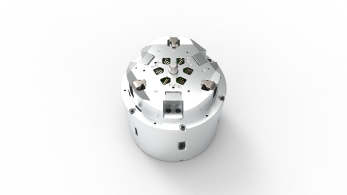
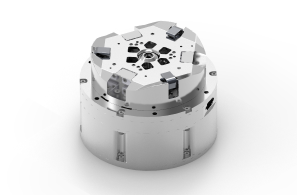
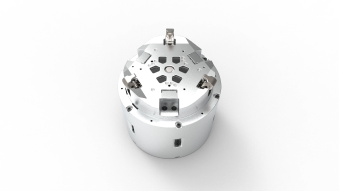
Relevant expertise for the project
iBOSS GmbH, headquartered in Aachen, Germany, is at the forefront of pioneering space-based technology standards. Specializing in the development of the iSSI® – intelligent Space System Interface) Modular Coupling Kit, iBOSS is dedicated to revolutionizing space and Earth operations through modular, Plug-and-Play (PnP) solutions that promise unparalleled upgrades, reuse, maintainability, and cost efficiency. With a mission centered on providing cutting-edge, standardized technologies for ISAM – In-Space Assembly, Manufacturing, and Servicing, the company leverages over 12 years of experience to support the evolution of the future ISAM ecosystem. As a prominent player and the first foreign member in the CONFERS association, iBOSS is instrumental in driving the development of international standards for space system interfaces. With a track record of success, including the significant in-orbit demonstration of the iSSI® aboard the ISS – International Space Station, and a diverse client base ranging from space agencies to industry, iBOSS stands as a key contributor to the next generation of space exploration and commercialization.
Main role in the project
iBOSS will contribute to the standardization of satellite interfaces with its experience and design requirements in the area of ISAM. As one of the three main European companies developing satellite interfaces of this class, alongside SENER and SapceApps, it is beneficial for the main objective and purpose of the ISAM activities to bring together the experiences of these companies for mutual knowledge gain.
![iSSI® ready for coupling with extended alignment pins also used for transferring up to 5kW of power [Source: iBOSS GmbH]](https://spaceusb.eu/wp-content/uploads/2024/03/thumbnail.png)
![iSSI®- intelligent Space System Interface compact design with unmatched flat surface architecture [Source: iBOSS GmbH]](https://spaceusb.eu/wp-content/uploads/2024/03/thumbnail-5.png)
iSSI® ready for coupling with extended alignment pins also used for transferring up to 5kW of power [Source: iBOSS GmbH]
iSSI®- intelligent Space System Interface compact design with unmatched flat surface architecture [Source: iBOSS GmbH]
Relevant expertise for the project
SpaceApps has a large expertise in space robotic and system development and testing (through EC/ESA projects) and more specifically a large implication in the development of several SRC building blocks. HOTDOCK has been deployed in several activities as MOSAR, PULSAR, EROSS+, PERIOD, COROB-X… covering a large set of applications including on-orbit servicing, OSAM, and planetary tracks.
Main role in the project
SpaceApps will bring its expertise in SI design, development and testing to support the work in the project. More particularly, it will provide, as input, the HOTDOCK device and mature its design to gain interoperability with the two other SI (SIROM and iSSI®). SpaceApps will participate to the whole set of actions, including the definition, specification, design, MAIT and analysis of the results.
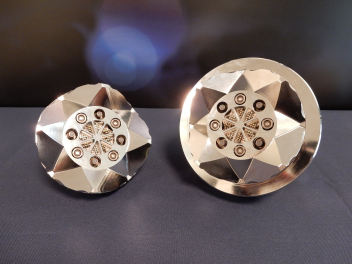
Laboratory model of HOTDOCK by Space Apps
Relevant expertise for the project
DFKI is one of the largest non-profit institutes dedicated to AI and has been working in the field of AI research for over 35 years. At the Robobtics Innovation Center in Bremen, DFKI has been researching the analysis and solution of complex design and control challenges, from deep sea to space robotics, since 2006. As part of the development of planetary robots and modular systems, interconnects were developed at proof-of-concept level to achieve electrical and mechanical coupling according to the requirements of various robotic missions. DFKI has gathered knowledge about the capabilities of interconnects and application-oriented requirements in numerous other projects. This knowledge and background in the development and benchmarking of multifunctional interconnects, where they had the possibility to test and evaluate all three interfaces from a mechanical and electrical (including data) point of view.
Main role in the project
DFKI will contribute to enhance and standardize the multifunctional interfaces HOTDOCK, iSSI® and SIROM. Its experience from the Standard Interconnect (SI) benchmark task of the OG12 PERIOD shall help the partners to improve the respective SIs and pave the way for future standardization of Sis.
Relevant expertise for the project
IEIC has developed a know-how of more than twenty years in the consulting related to research, development and innovation (RDI) projects, in particular European. IEIC has accompanied more than 500 European project proposals over the last twenty years. They also had the opportunity to directly contribute to more than twenty winning projects as a partner, including three piloted by Thales Alenia Space.
Main role in the project
IEIC will provide its knowledge within the innovation management: dissemination, communication, and exploitation activities. In extenso will also organize and manage workshops along the project.




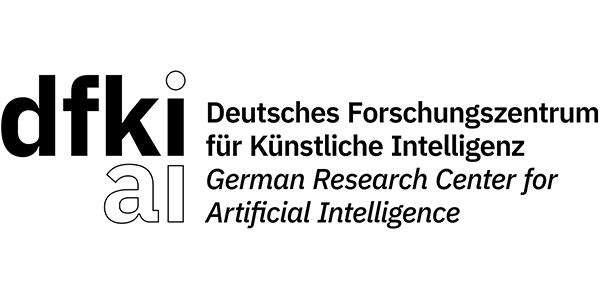

ABOUT THALES ALENIA SPACE:
Drawing on over 40 years of experience and a unique combination of skills, expertise and cultures, Thales Alenia Space delivers cost effective solutions for telecommunications, navigation, Earth observation, environmental management, exploration, science and orbital infrastructures. Governments and private industry alike count on Thales Alenia Space to design satellite-based systems that provide anytime, anywhere connections and positioning, monitor our planet, enhance management of its resources and explore our Solar System and beyond. Thales Alenia Space sees space as a new horizon, helping build a better, more sustainable life on Earth. A joint venture between Thales (67%) and Leonardo (33%), Thales Alenia Space also teams up with Telespazio to form the parent companies’ Space Alliance, which offers a complete range of services. Thales Alenia Space posted consolidated revenues of approximately €2.2 billion in 2023 and has around 8,600 employees in 10 countries with 17 sites in Europe and a plant in the US.
Relevant expertise for the project
The main skill to be brought by Thales Alenia Space to the project is related to the space systems integrator and design expertise. The team of Thales Alenia Space will bring also a multidisciplinary expertise based on the experience on servicing mission analysis, mechanisms, dynamics, EPS, EMC/ESD, DHS, Thermal, Robotics, Guidance/Navigation/Control and servicing avionics. Thales Alenia Space team will bring also the right coordination and dissemination capacities and the test bench for the demonstration phase. The space system vision and transdisciplinary expertise of TAS will be used for the standards definition. The “Robotic orbital rendezvous facility” will be used to execute the test campaign.
Main role in the project
Thales Alenia Space will collect all the necessary information from the partners/manufacturers of the Sis to perform a state of the art of the existing Sis. Then Thales Alenia Space will preliminarily establish the specifications for the future universal connectors for OOS & Assembly missions (including mechanical, electrical, thermal standards & protocols for data exchange). In addition, Thales Alenia Space will work on the data handling and drivers’ harmonization of the Sis in order to mimic the level of standardization of ground USB interfaces. TAS will also coordinate the demonstration phase providing the laboratory where the interoperability of one (or more) small/large scale space interconnectors will be verified.
Relevant expertise for the project
In Aerospace and Defence, Sener is a leading supplier of high-performance aerospace systems for Space, Defence and Science for more than 55 years. It supplies electromechanical components and systems, navigation systems (GNC/AOCS), communications, astronomy, and optics systems at projects for NASA, ESA, JAXA or Roscosmos, among others. The previous experience as coordinator in the development of Standard Interface is complemented by the involvement in other European commission activities in EROSS and PERIOD and in on-going activities related to robotic standard interfaces. The SIROM as a product has been also implemented in different ESA projects in which a standard interface for robotic activities is needed including MIRROR or ISAAC projects.Main role in the project
The activities to be carried out by Sener will provide the experience of the last ten years of SIROM development including use cases and design solutions implemented to be combined with the other partners to arrive to a way of compatibility of the interfaces.


Relevant expertise for the project
iBOSS GmbH, headquartered in Aachen, Germany, is at the forefront of pioneering space-based technology standards. Specializing in the development of the iSSI® – intelligent Space System Interface) Modular Coupling Kit, iBOSS is dedicated to revolutionizing space and Earth operations through modular, Plug-and-Play (PnP) solutions that promise unparalleled upgrades, reuse, maintainability, and cost efficiency. With a mission centered on providing cutting-edge, standardized technologies for ISAM – In-Space Assembly, Manufacturing, and Servicing, the company leverages over 12 years of experience to support the evolution of the future ISAM ecosystem. As a prominent player and the first foreign member in the CONFERS association, iBOSS is instrumental in driving the development of international standards for space system interfaces. With a track record of success, including the significant in-orbit demonstration of the iSSI® aboard the ISS – International Space Station, and a diverse client base ranging from space agencies to industry, iBOSS stands as a key contributor to the next generation of space exploration and commercialization.
Main role in the project
iBOSS will contribute to the standardization of satellite interfaces with its experience and design requirements in the area of ISAM. As one of the three main European companies developing satellite interfaces of this class, alongside SENER and SapceApps, it is beneficial for the main objective and purpose of the ISAM activities to bring together the experiences of these companies for mutual knowledge gain.
![iSSI® ready for coupling with extended alignment pins also used for transferring up to 5kW of power [Source: iBOSS GmbH]](https://spaceusb.eu/wp-content/uploads/2024/03/thumbnail.png)
![iSSI®- intelligent Space System Interface compact design with unmatched flat surface architecture [Source: iBOSS GmbH]](https://spaceusb.eu/wp-content/uploads/2024/03/thumbnail-5.png)
Relevant expertise for the project
SpaceApps has a large expertise in space robotic and system development and testing (through EC/ESA projects) and more specifically a large implication in the development of several SRC building blocks. HOTDOCK has been deployed in several activities as MOSAR, PULSAR, EROSS+, PERIOD, COROB-X… covering a large set of applications including on-orbit servicing, OSAM, and planetary tracks.
Main role in the project
SpaceApps will bring its expertise in SI design, development and testing to support the work in the project. More particularly, it will provide, as input, the HOTDOCK device and mature its design to gain interoperability with the two other SI (SIROM and iSSI®). SpaceApps will participate to the whole set of actions, including the definition, specification, design, MAIT and analysis of the results.

Relevant expertise for the project
DFKI is one of the largest non-profit institutes dedicated to AI and has been working in the field of AI research for over 35 years. At the Robobtics Innovation Center in Bremen, DFKI has been researching the analysis and solution of complex design and control challenges, from deep sea to space robotics, since 2006. As part of the development of planetary robots and modular systems, interconnects were developed at proof-of-concept level to achieve electrical and mechanical coupling according to the requirements of various robotic missions. DFKI has gathered knowledge about the capabilities of interconnects and application-oriented requirements in numerous other projects. This knowledge and background in the development and benchmarking of multifunctional interconnects, where they had the possibility to test and evaluate all three interfaces from a mechanical and electrical (including data) point of view.
Main role in the project
DFKI will contribute to enhance and standardize the multifunctional interfaces HOTDOCK, iSSI® and SIROM. Its experience from the Standard Interconnect (SI) benchmark task of the OG12 PERIOD shall help the partners to improve the respective SIs and pave the way for future standardization of Sis.
Relevant expertise for the project
IEIC has developed a know-how of more than twenty years in the consulting related to research, development and innovation (RDI) projects, in particular European. IEIC has accompanied more than 500 European project proposals over the last twenty years. They also had the opportunity to directly contribute to more than twenty winning projects as a partner, including three piloted by Thales Alenia Space.Main role in the project
IEIC will provide its knowledge within the innovation management: dissemination, communication, and exploitation activities. In extenso will also organize and manage workshops along the project.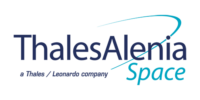



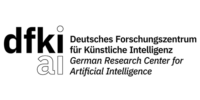

Relevant expertise for the project
The main skill to be brought by Thales Alenia Space to the project is related to the space systems integrator and design expertise. The team of Thales Alenia Space will bring also a multidisciplinary expertise based on the experience on servicing mission analysis, mechanisms, dynamics, EPS, EMC/ESD, DHS, Thermal, Robotics, Guidance/Navigation/Control and servicing avionics. Thales Alenia Space team will bring also the right coordination and dissemination capacities and the test bench for the demonstration phase. The space system vision and transdisciplinary expertise of TAS will be used for the standards definition. The “Robotic orbital rendezvous facility” will be used to execute the test campaign.
Main role in the project
Thales Alenia Space will collect all the necessary information from the partners/manufacturers of the Sis to perform a state of the art of the existing Sis. Then Thales Alenia Space will preliminarily establish the specifications for the future universal connectors for OOS & Assembly missions (including mechanical, electrical, thermal standards & protocols for data exchange). In addition, Thales Alenia Space will work on the data handling and drivers’ harmonization of the Sis in order to mimic the level of standardization of ground USB interfaces. TAS will also coordinate the demonstration phase providing the laboratory where the interoperability of one (or more) small/large scale space interconnectors will be verified.
Relevant expertise for the project
In Aerospace and Defence, Sener is a leading supplier of high-performance aerospace systems for Space, Defence and Science for more than 55 years. It supplies electromechanical components and systems, navigation systems (GNC/AOCS), communications, astronomy, and optics systems at projects for NASA, ESA, JAXA or Roscosmos, among others. The previous experience as coordinator in the development of Standard Interface is complemented by the involvement in other European commission activities in EROSS and PERIOD and in on-going activities related to robotic standard interfaces. The SIROM as a product has been also implemented in different ESA projects in which a standard interface for robotic activities is needed including MIRROR or ISAAC projects.Main role in the project
The activities to be carried out by Sener will provide the experience of the last ten years of SIROM development including use cases and design solutions implemented to be combined with the other partners to arrive to a way of compatibility of the interfaces.


Relevant expertise for the project
iBOSS GmbH, headquartered in Aachen, Germany, is at the forefront of pioneering space-based technology standards. Specializing in the development of the iSSI® – intelligent Space System Interface) Modular Coupling Kit, iBOSS is dedicated to revolutionizing space and Earth operations through modular, Plug-and-Play (PnP) solutions that promise unparalleled upgrades, reuse, maintainability, and cost efficiency. With a mission centered on providing cutting-edge, standardized technologies for ISAM – In-Space Assembly, Manufacturing, and Servicing, the company leverages over 12 years of experience to support the evolution of the future ISAM ecosystem. As a prominent player and the first foreign member in the CONFERS association, iBOSS is instrumental in driving the development of international standards for space system interfaces. With a track record of success, including the significant in-orbit demonstration of the iSSI® aboard the ISS – International Space Station, and a diverse client base ranging from space agencies to industry, iBOSS stands as a key contributor to the next generation of space exploration and commercialization.
Main role in the project
iBOSS will contribute to the standardization of satellite interfaces with its experience and design requirements in the area of ISAM. As one of the three main European companies developing satellite interfaces of this class, alongside SENER and SapceApps, it is beneficial for the main objective and purpose of the ISAM activities to bring together the experiences of these companies for mutual knowledge gain.
![iSSI® ready for coupling with extended alignment pins also used for transferring up to 5kW of power [Source: iBOSS GmbH]](https://spaceusb.eu/wp-content/uploads/2024/03/thumbnail.png)
![iSSI®- intelligent Space System Interface compact design with unmatched flat surface architecture [Source: iBOSS GmbH]](https://spaceusb.eu/wp-content/uploads/2024/03/thumbnail-5.png)
Relevant expertise for the project
SpaceApps has a large expertise in space robotic and system development and testing (through EC/ESA projects) and more specifically a large implication in the development of several SRC building blocks. HOTDOCK has been deployed in several activities as MOSAR, PULSAR, EROSS+, PERIOD, COROB-X… covering a large set of applications including on-orbit servicing, OSAM, and planetary tracks.Main role in the project
SpaceApps will bring its expertise in SI design, development and testing to support the work in the project. More particularly, it will provide, as input, the HOTDOCK device and mature its design to gain interoperability with the two other SI (SIROM and iSSI®). SpaceApps will participate to the whole set of actions, including the definition, specification, design, MAIT and analysis of the results.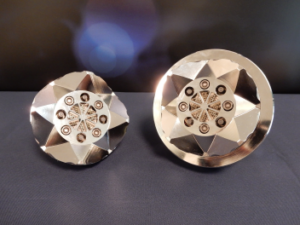
Relevant expertise for the project
DFKI is one of the largest non-profit institutes dedicated to AI and has been working in the field of AI research for over 35 years. At the Robobtics Innovation Center in Bremen, DFKI has been researching the analysis and solution of complex design and control challenges, from deep sea to space robotics, since 2006. As part of the development of planetary robots and modular systems, interconnects were developed at proof-of-concept level to achieve electrical and mechanical coupling according to the requirements of various robotic missions. DFKI has gathered knowledge about the capabilities of interconnects and application-oriented requirements in numerous other projects. This knowledge and background in the development and benchmarking of multifunctional interconnects, where they had the possibility to test and evaluate all three interfaces from a mechanical and electrical (including data) point of view.
Main role in the project
DFKI will contribute to enhance and standardize the multifunctional interfaces HOTDOCK, iSSI® and SIROM. Its experience from the Standard Interconnect (SI) benchmark task of the OG12 PERIOD shall help the partners to improve the respective SIs and pave the way for future standardization of Sis.
Relevant expertise for the project
IEIC has developed a know-how of more than twenty years in the consulting related to research, development and innovation (RDI) projects, in particular European. IEIC has accompanied more than 500 European project proposals over the last twenty years. They also had the opportunity to directly contribute to more than twenty winning projects as a partner, including three piloted by Thales Alenia Space.
Main role in the project
IEIC will provide its knowledge within the innovation management: dissemination, communication, and exploitation activities. In extenso will also organize and manage workshops along the project.


